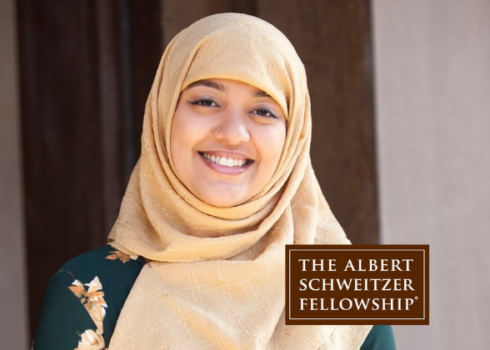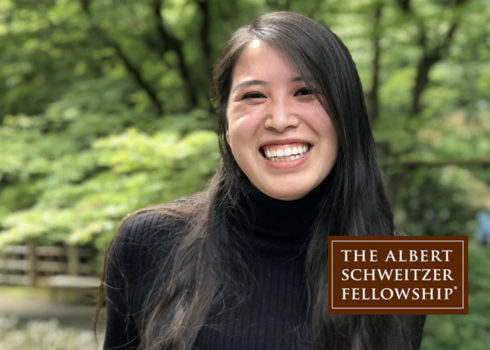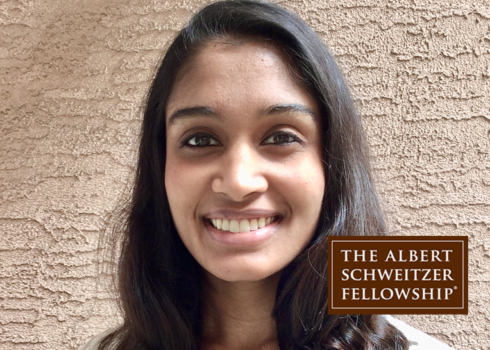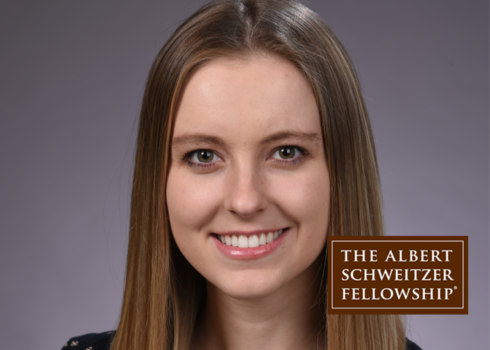Our collective mission to advance the health of the public has been fundamental to the advancement and prosperity of families in our region. In 2015, Southwestern Medical Foundation joined with the Dallas-Fort Worth Schweitzer Fellowship Program (ASF) to bring the innovative service and leadership program to medical and graduate students in the Dallas-Fort Worth area. 2021 Albert Schweitzer Fellow, Zara Khan, is passionate about helping others and her fellowship focuses on preventing abuse in teen relationships.
The Albert Schweitzer Fellowship aims to address local health disparities and the social determinants of health while developing future leaders. It was coined as a nod to the renowned physician-humanitarian and health care hero, Dr. Albert Schweitzer, who continues to inspire the legacy of community service through health care.
We had the opportunity to discuss the inspiring work of some of this year’s DFW Albert Schweitzer Fellows, who continue the spirit of Dr. Albert Schweitzer by investing in our region’s health.
An Interview with Zara Khan: Preventing Abuse in Teen Relationships
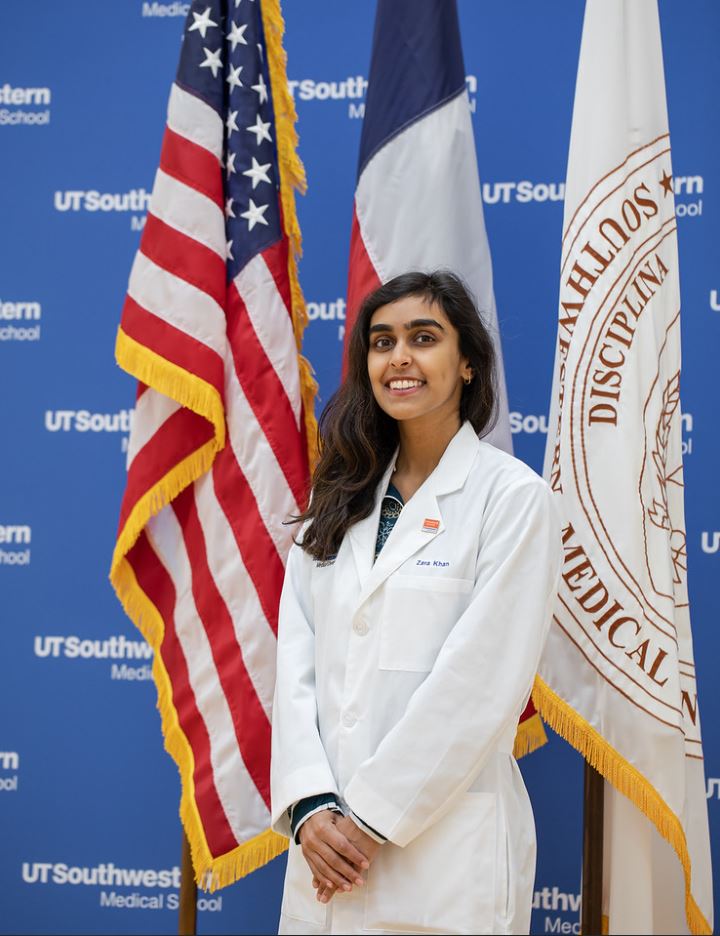
Q: Can you tell us a little bit about your background and what has led up to this moment in your career?
A: While my family is from Pakistan, I grew up and attended college in Houston. My parents always encouraged my pursuit of a path that would allow me to be of service to others. Throughout undergrad, I participated in research and led service-learning projects focused on health injustice in my local community and globally. After experiences working with the Baylor Teen Health Clinic and studying obstetric fistula in Lilongwe, Malawi, my interests came to center on sexual and reproductive health (SRH). I aim for a career combining medicine, research, and service to ensure equitable access to high-quality SRH care. Before coming to Dallas for medical school, I lived for three years in Atlanta, where I completed my MPH, worked as a data analyst for projects focused on gender-based violence, adolescent health, and women’s empowerment, and was involved in organizing with the Asian-American community.
Q: How will your project help prevent abuse in teen relationships?
A: Intimate partner violence (IPV) has significant consequences for physical, psychological, and financial health across the lifespan, especially for teens. In Texas in 2019, more than fifteen percent of high school students reported experiencing sexual IPV in the past year, while over 8% reported physical IPV. For my project, I will be working with Be Project, the youth violence prevention program of The Family Place. I will be teaching teens healthy relationship skills and training adult caregivers how to recognize signs of teen dating abuse and to create protective environments for teens. Additionally, I will organize leadership groups for teens, strengthening their advocacy skills so that they may lead IPV prevention work in their own communities.
Q: What does being an Albert Schweitzer Fellow mean to you?
A: The Schweitzer Fellowship has enabled me to engage meaningfully and longitudinally with my community to address IPV, a significant, prevalent negative social determinant of health. The Fellowship’s emphasis on sustainability has taught me to think deeply about my long-term service goals and how to build enduring community partnerships.
Above all, I am grateful for the opportunities to listen, critically reflect, learn, and grow through interactions with members of my community, the Be Project team, and the other Fellows.
The Fellowship’s emphasis on sustainability has taught me to think deeply about my long-term service goals and how to build enduring community partnerships.
Zara Khan
Q: What role do you think philanthropy plays in supporting research and innovation?
A: Philanthropic support of scientific and technical advances, as well as investment in community-strengthening activities, can yield significant improvements in health, education, and wellness for all.
Philanthropy carries immense potential to benefit the public good.
Zara Khan
The Legacy of the Albert Schweitzer Fellowship
The philosophy that ASF champions aligns with the principles the Foundation has represented since its founding. Both ASF and the Foundation were established during World War II to develop leaders in service and inspire great citizenship through philanthropy. ASF was founded by Helene Bresslau Schweitzer and Albert Schweitzer in 1940. During the same time period, Southwestern Medical Foundation instituted the Ho Din Award.
Through the Ho Din Award, the highest honor bestowed on a graduating medical student from UT Southwestern, the Foundation has supported students who exemplify knowledge, understanding, and compassion. The Fellowship Program personifies these values, instilling a life-long philosophy of compassionate patient care, and paving the way for better health for all.
The Fellowship is open to students in eight local universities, including Baylor University, Southern Methodist University, Texas Christian University, Texas Woman’s University, University of Dallas, University of Texas at Arlington, University of Texas at Dallas, and UT Southwestern Medical Center.
Learn more about the Foundation’s partnership with the Albert Schweitzer Fellowship
